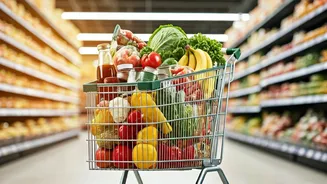What is SNAP?
The Supplemental Nutrition Assistance Program (SNAP) is a significant government initiative in the United States, designed to aid individuals and families
with low incomes. It provides financial assistance for purchasing food, thereby helping to combat food insecurity. The program, formerly known as the Food Stamp Program, plays a critical role in supporting vulnerable populations, including children, the elderly, and those with disabilities. SNAP benefits are distributed through Electronic Benefit Transfer (EBT) cards, which function like debit cards and can be used at authorized retail food stores. SNAP’s funding and eligibility criteria are subject to periodic review and can be affected by changes in economic conditions and legislative actions.
Who Benefits From SNAP?
SNAP's reach is extensive, with approximately 42 million Americans relying on the program for food assistance. This diverse group encompasses various demographics, including low-income families, seniors, individuals with disabilities, and unemployed people. The program is designed to provide a safety net, ensuring that these individuals and families have access to nutritious food. Eligibility for SNAP is determined by factors such as income, household size, and assets. The program aims to alleviate hunger and improve the overall health and well-being of its recipients by ensuring they can afford essential food items, such as fruits, vegetables, and other necessary groceries. Participation in SNAP can fluctuate based on economic trends and evolving government policies.
Possible Consequences of Cuts
Changes to SNAP funding can have substantial effects on the lives of millions. Any reduction in funding or stricter eligibility requirements could lead to significant increases in food insecurity, potentially pushing many Americans to struggle to afford enough to eat. Such cuts could also affect the local economies, as SNAP benefits contribute to spending at grocery stores and other food retailers. Furthermore, decreased access to food assistance may worsen health outcomes, as individuals may have to reduce their food intake or choose less nutritious options. The potential consequences of changes to the SNAP program underscore the importance of understanding the program's purpose and its critical role in supporting vulnerable populations.













